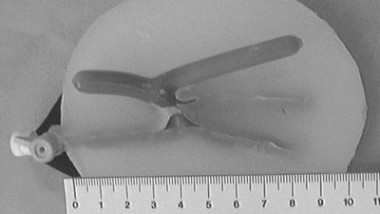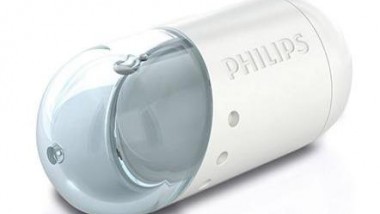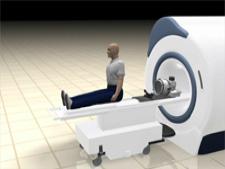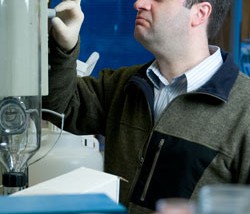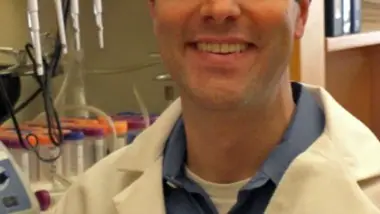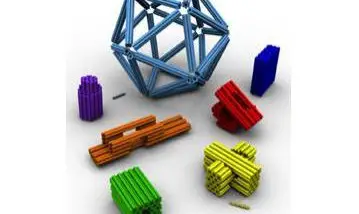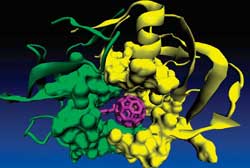Collaboration between the Department of Mechanical Engineering at Imperial College in London, and its Mechatronics in Medicine Laboratory, has yielded the Bloodbot project, in which a robot has been designed to take blood samples from the ante-cubital fossa (ACF). Such ...
Making Cancer Cells Glow
Researchers at AntiCancer Incorporated in San Diego, California and at Okayama University in Japan are developing a virus that makes cancer cells permanently glow. A fluorescence gene derived from jellyfish is integrated into tumors using a modified cold virus. The ...
Philips’ New Health Monitoring System
Philips Research have developed a body vest with integrated textile electrodes and control electronics to measure the patient’s ECG (Electro-cardiogram), as well as sensors that are placed in the patient’s bed to measure his heart-rate, breathing rate and body movement ...
Philips’ Intelligent iPill
Philips’ new intelligent pill (iPill) technology has the potential to take intelligent drug delivery to the next level. As the first pill that combines technologies for localized drug release with the ability to measure the internal environment and communicate this ...
Brain Surgery With Sound Waves
Researchers from University Hospital Zurich and the Israeli company Insightec Ltd. have developed a new type of brain surgery using high intensity ultrasound beams to precisely heat and destroy damaged brain tissue. Their procedure eliminates the need to cut through ...
3D X-Ray Images Get Closer to Reality
Researchers at the University of Nebraska-Lincoln (UNL) and several Russian colleagues have made significant strides toward coherent, three-dimensional x-rays that could lead to real-time three dimensional medical imaging. The scientists focus an optical laser into concentrations of gas, causing them ...
Dispensing Drugs Through Contact Lenses
“Cambridge Eye-novations” of Cambridge, Massachusetts is developing contact lenses that can automatically dispense drugs to the eye for up to 30 days at a time. Based on research centered at the Laboratory for Biomaterials and Drug Delivery at Children’s Hospital ...
Key Protein Contains Chronic Infection
A research team from UCLA, led by Prof. David Brooks has discovered the reason why the immune system can fight off some infections and surrenders to others. This discovery, say the scientists, may help them develop drugs that fight chronic ...
DNA ‘Origami’
Scientists at Dana-Farber Cancer Institute in Boston, Massachusetts found a way to create multilayered objects from DNA strings. These tiny structures may be used as biomedical nanodevices that could deliver drugs into specific cells, thus aiding the battle against various ...
A Molecular Key to Halt HIV
A transatlantic research team has recently identified specific molecules that could block the ability of HIV to spread through the body by binding other proteins. If their discovery can be put to use as a drug, it will save many ...

